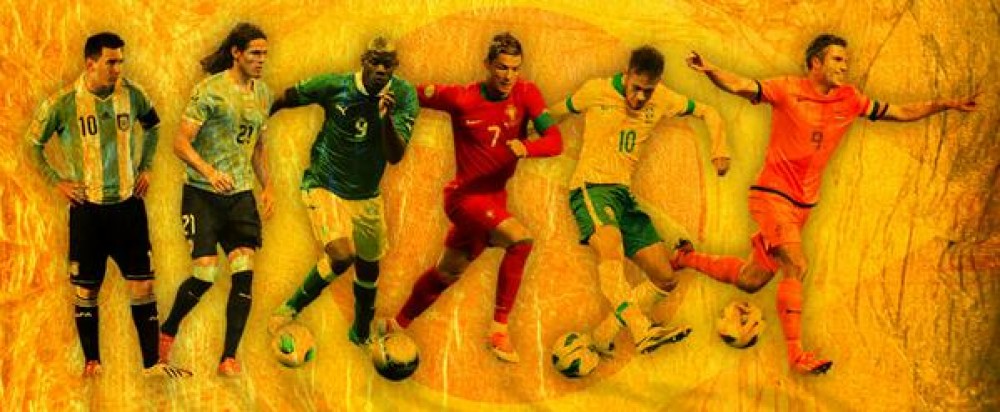In the Walt Disney classic, Beauty and the Beast, the character Gaston is everything a cartoon villain should be; boorish, arrogant, conceited, cowardly and above all else, a small minded bully. It is therefore an unsettling coincidence that Gaston’s Uruguayan namesake Ramirez should display those exact same qualities whilst in action for his country during a crucial world cup match.
The major controversy from Tuesday night’s clash between Italy and Uruguay was not the suspected bite by Luiz Suarez on Giorgio Chiellini but rather the reaction of Ramirez towards Chiellini afterwards. The Italian defender was rightly incensed by Suarez’s conduct and made an attempt to show the referee the teeth marks adorning his shoulder. That Ramirez took umbrage with Chiellini speaks volumes about his character. He even went as far as to attempt to force Chiellini’s shirt back over his shoulder. There is only one word for this kind of behaviour, contempt; contempt for the victim of a crime and an astounding level of arrogance to believe that the victim should remain silent.
Make no mistake about it, Suarez has committed a crime here. If you and I were to approach someone in the street tomorrow and sink our gnashers into their shoulder we would be hauled in for questioning by police and referred for psychiatric examination. However, Suarez does not live in the real world. He lives in the cosseted world of the wealthy individual where indiscretion can be made to disappear like a magician’s handkerchief.
This is the third such incident where Suarez has bitten an opponent. In 2010 whilst playing for Ajax he received a seven game ban for biting PSV’s Otman Bakkal. His transfer to Liverpool occurred during this suspension so were he to return to the Eredivisie later in his career he would start with a ban. In April last year the FA handed down a ten match suspension for biting Chelsea’s Branislav Ivanovic. As this latest nibbling incident occurred during a match organised by FIFA it is in the hands of the world governing body to sanction Suarez. In a statement released last night, FIFA declared that the maximum ban permissible under their regulations is 24 international matches. If Suarez is found guilty (and I use the word if in the name of democracy) then FIFA should not hesitate to issue a 24 match ban and thus effectively end the Uruguayan’s international career. His behaviour is clearly not unprecedented and the punishment should reflect this.
And yet despite all the recrimination (there was also an eight game ban for racially abusing Patrice Evra) Suarez continues to transgress and, infuriatingly, play the victim. You could be forgiven for asking how one player can have such a lengthy charge sheet without appearing to show any remorse?
The answer lies in the conduct of Ramirez. His outrageous behaviour in protecting his teammate was typical of the indulgence Suarez has received throughout his career. Strong willed managers will, naturally seek to protect their prize assets when the chips are down. One only has to think of the way Alex Ferguson refused to sack Eric Cantona in 1995 following his assault of a Crystal Palace fan as an example of a manager creating a siege mentality to strengthen his club in a desperate situation. However, the indulgences bestowed on Suarez go beyond the realms of siege mentality. Whereas Cantona was punished judicially, and Ferguson made no attempt to resist this process, the reaction of then Liverpool manager Kenny Dalglish during Suarez’s racism ban was little more than posturing. The Liverpool players and Dalglish himself wore t-shirts protesting Suarez’s innocence after an independent panel had found him guilty. As a show of defiance, it was lacking in dignity and class.
Ramirez however, has gone above and beyond the previous ways in which Suarez’s teammates have attempted to shield him from blame. In reacting angrily towards Chiellini, Ramirez showed that he is little more than a coward, a coward who felt the need to bully an opponent into concealing the truth. If and when Suarez is suspended, similar punishment should also be handed down to Ramirez though it is unlikely that this will happen as retrospective action against indecency is unprecedented in football. Ramirez the coward will, unfortunately, be able to wriggle his way out from under the microscope.
